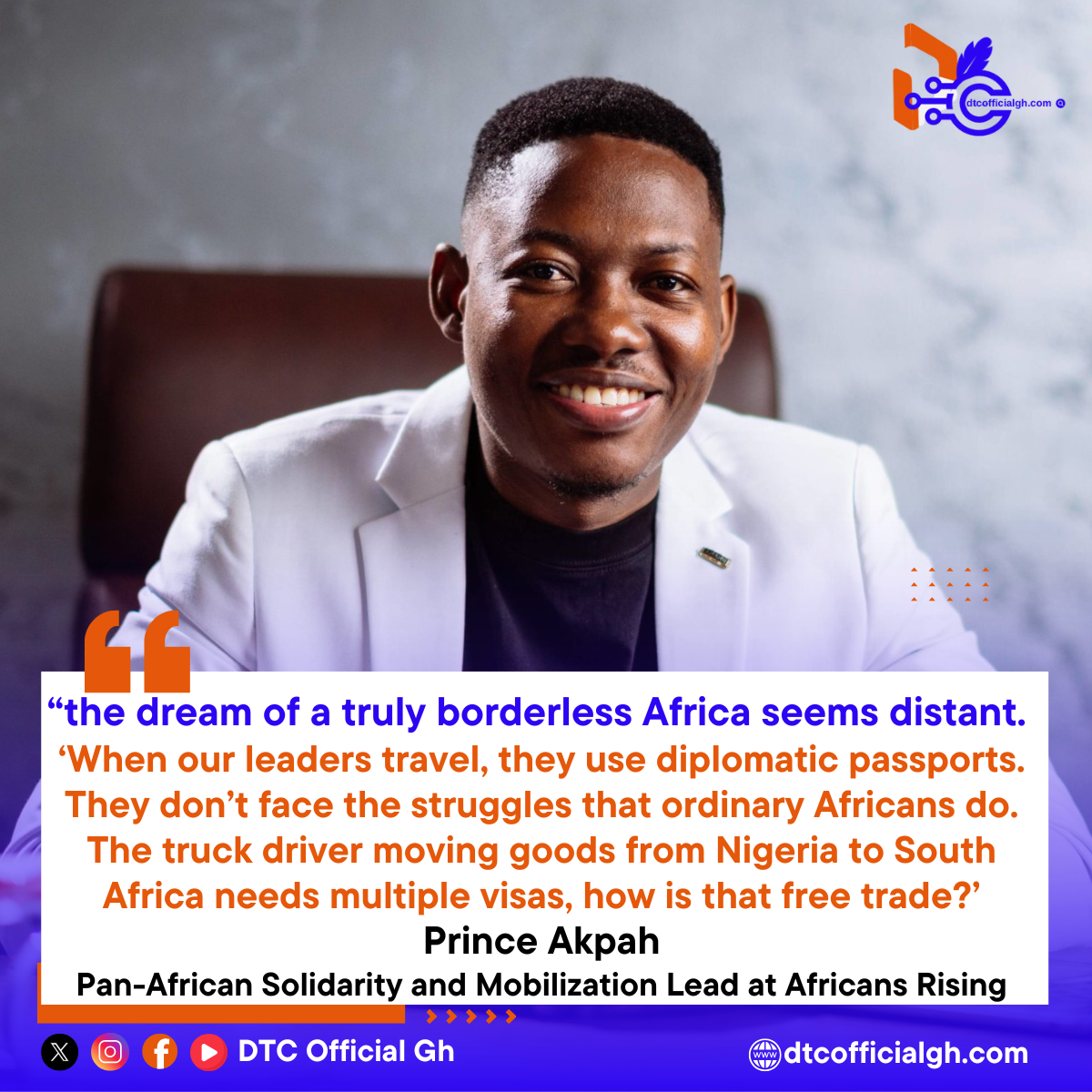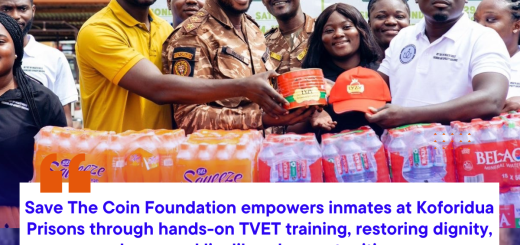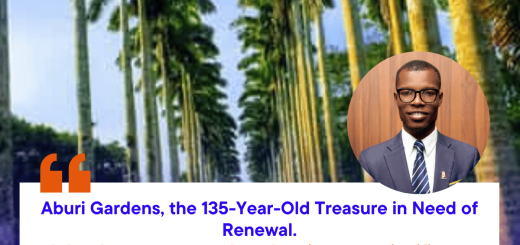Rethinking Africa: Free Movement and Trade for a Borderless Continent

Introduction
Africa’s vision of a borderless continent has been a longstanding aspiration, but significant challenges remain in realizing free movement and trade across its 54 countries. Despite initiatives like the African Continental Free Trade Area (AfCFTA), the continent’s fragmented political boundaries, rooted in colonial legacies, continue to inhibit seamless interaction and economic integration. This blog explores the insights from a conversation with Prince Akpah, Pan-African solidarity and mobilization lead at Africans Rising, highlighting obstacles and ongoing efforts aimed at uniting Africa through open borders, trade, and people-to-people connections.

The Legacy of Borders and Political Will
Historical Context: The Berlin Conference and Its Aftermath
The borders that cut through Africa’s landscape today are a product of the Berlin Conference of 1884-85, where European powers partitioned the continent with little regard for existing ethnic, cultural, or social boundaries. As Prince Aka noted, the current political leaders were not involved in this process, yet they inherited these borders that divide communities and limit cross-border interaction.
Diplomatic Privileges vs. Citizens’ Realities
One of the main paradoxes highlighted is that while political leaders and diplomats enjoy nearly unrestricted movement due to diplomatic passports, ordinary Africans face stringent visa restrictions and bureaucratic hurdles. This divergence creates a gap where those in power can freely traverse the continent while a majority of people cannot, undermining the principle of free movement that Africa’s integration efforts aim to achieve.
Read Also: Free Trade, But Where’s the Free Movement?
Africans Rising and the Push for Free Movement
About Africans Rising
Africans Rising is a grassroots movement made up of over 40,000 members worldwide. It coordinates advocacy and mobilization efforts to champion African integration, free movement, and solidarity among people. Their work includes organizing marches, petitions, and community engagements aimed at pressuring governments to honor commitments made toward continental integration.
Campaign for Free Movement
In 2022, Africans Rising launched a major campaign pushing for Africans’ right to move across borders without hindrance. This initiative seeks to remind governments of their pledge at the African Union in 2018 to promote free movement. Despite some progress, political inertia and lack of widespread political will remain significant barriers.
Read Also: Youth in AI Launches Groundbreaking AI Lab at Google Research Accra
The Disconnect Between Trade and Movement
Linking AfCFTA and Free Movement
The African Continental Free Trade Area (AfCFTA) agreement is designed to enhance intra-African trade, but Prince Aka underscores the paradox that free trade cannot flourish without also ensuring free movement of people. Traders, transport workers, and business owners—especially at grassroots levels—continuously face challenges crossing borders due to visa restrictions, high transportation costs, and inefficient infrastructure.
Real-Life Challenges for Traders and Goods Movement
Unlike wealthy businessmen who can leverage diplomatic contacts to navigate visa processes, many operators in the informal economy, such as truck drivers transporting goods between countries, struggle with visa obtaining processes and border delays. This scenario hampers trade flow, increases costs, and reduces economic opportunities for ordinary Africans who depend on cross-border commerce for their livelihoods.
Role of Media and Storytelling in Promoting Integration
Media’s Responsibility and Limitations
The media has a critical role in telling Africa’s story and promoting integration agendas. However, some media outlets and bloggers focus primarily on content that drives their revenue rather than raising awareness about systemic challenges like free movement barriers. That said, individual travel bloggers and activists are beginning to fill this gap by sharing firsthand experiences and highlighting obstacles encountered while moving across Africa.
The Need for a Pan-African Media Platform
A significant impediment to continental integration is the absence of a robust Pan-African media network. Lack of unrestricted journalist movement and cross-border collaboration limits the continent’s ability to share stories, build solidarity, and foster a unified African identity. Cases where journalists and activists are deported or harassed while covering regional issues underscore the urgent need to open borders not just for economic actors but also for media professionals.
For more insights and inspiring stories , kindly follow us on Twitter and WhatsApp for more.

Human Impacts of Restricted Movement
Health and Personal Stories
Beyond trade and politics, visa restrictions severely affect ordinary Africans’ ability to access healthcare, education, and family reunification across borders. Prince Aka shared a poignant example of a Gambian requiring eye surgery in Ghana and the bureaucratic hurdles involved in securing a visa for medical treatment.
Border Communities and Livelihoods
In regions where borders split communities, such as between the Democratic Republic of Congo and Congo Brazzaville, or Zambia, Zimbabwe, and neighboring countries, local market women and farmers find it difficult to travel even short distances for commerce. This disrupts traditional economic activities and deepens poverty for border populations.
Read Also: Unlocking Africa’s Trade and Fintech Potential: A Conversation with Nick Murphy
The Way Forward: Pan-African Solidarity and Political Commitment
Encouraging Governments to Implement Protocols
African Union protocols on free movement exist but their ratification and implementation by member states have been slow and inconsistent. A collective push from civil society, movements like Africans Rising, the media, and citizens is necessary to hold governments accountable and fast-track these commitments.
Enhancing Security Collaboration Across Borders
Security challenges such as terrorism in the Sahel region illustrate the benefits of cross-border cooperation. Intelligence sharing and collaborative security frameworks can mitigate threats more effectively than isolated national responses, emphasizing the importance of movement and communication openness.
Building a True Borderless Africa
Achieving a truly borderless Africa requires more than agreements; it calls for cultural shifts, political will, infrastructural development, and inclusive policies that prioritize the needs of everyday Africans. From enabling freer trade logistics to ensuring friendly and simple visa processes, the changes must reach all levels of society.
For more insights and inspiring stories , kindly follow us on Twitter and WhatsApp for more.
Conclusion
The dream of a borderless Africa is both inspiring and challenging. As Prince Akpah and Africans Rising demonstrate, grassroots mobilization and advocacy are vital to pushing governments and institutions to follow through on promises for free movement and economic integration. While AfCFTA holds potential to boost intra-African trade, it can only succeed if visa barriers and border restrictions are dismantled to allow the free flow of people, goods, and ideas. With sustained effort from activists, media, and citizens, Africa can move closer to a unified, prosperous future where borders no longer divide but connect.
Watch full the full video the interview below👇🌍📌
FAQ
Q1: What is Africans Rising?
Africans Rising is a pan-African grassroots movement comprising over 40,000 members worldwide focused on advocating for African unity, free movement, social justice, and political solidarity.
Q2: Why is free movement important for Africa’s development?
Free movement enables easier travel for trade, education, healthcare, and cultural exchange. It reduces costs, fosters economic growth, and promotes solidarity among African nations.
Q3: What are the main obstacles to free movement in Africa?
Colonial-era borders, visa restrictions, lack of political will, poor infrastructure, and inconsistent implementation of African Union protocols challenge free movement.
Q4: How can the media contribute to Africa’s integration?
By reporting on barriers to movement, sharing stories of cross-border experiences, advocating for policy change, and supporting the creation of Pan-African media platforms that facilitate continental dialogue.





1 Response
[…] READ ALSO: Rethinking Africa: Free Movement and Trade for a Borderless Continent […]